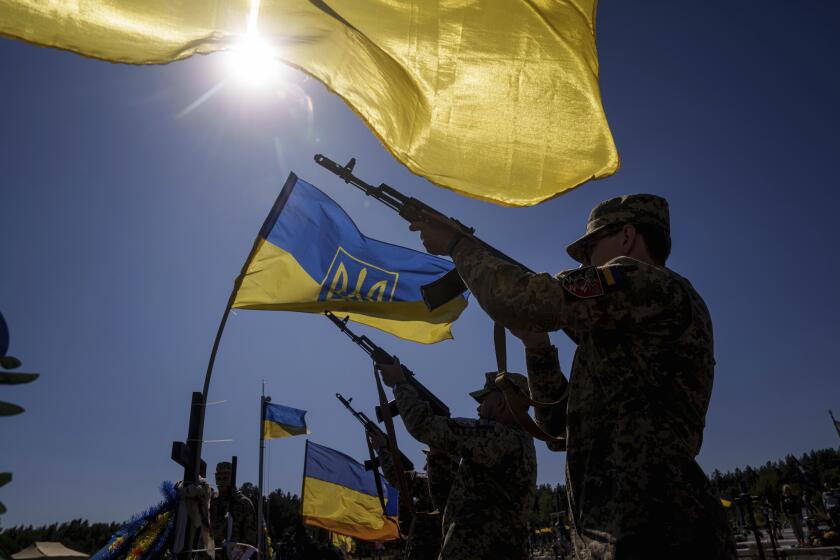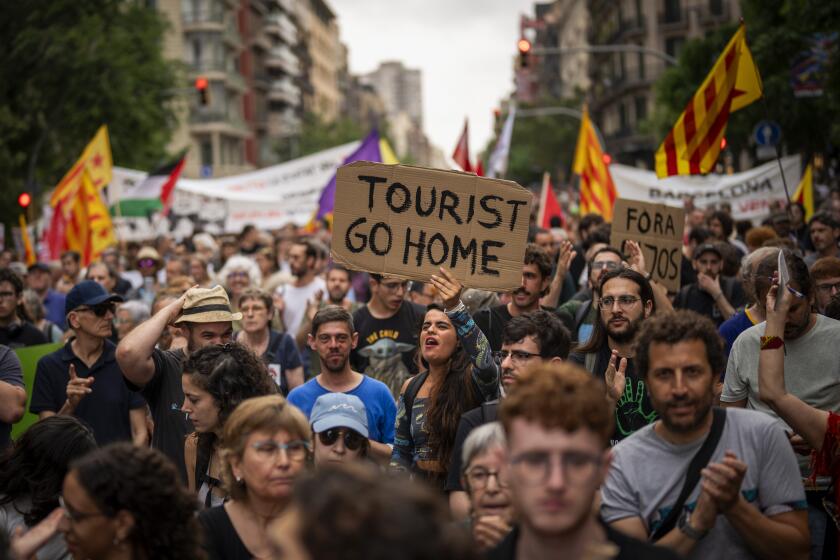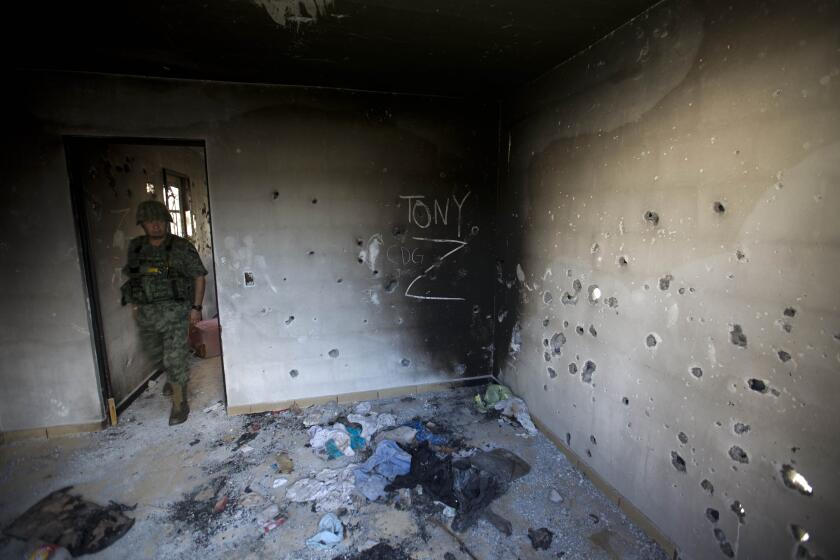Ex-president’s return is a test for current one
He’s back, and Peru is going to have to learn to deal with it.
The arrival of former President Alberto Fujimori on Saturday, seven years after he left in disgrace, poses a difficult challenge for the government of President Alan Garcia, which faces competing demands from supporters and critics.
“The extradition is a test by fire” for the government, sociologist and historian Nelson Manrique told the newspaper El Comercio.
Few Peruvians are neutral about the former agronomist who was elected president seemingly out of nowhere in 1990. Fujimori dissolved Congress in 1992 and brought Peru back from the brink of chaos as he presided autocratically over a painful economic recovery and an abuse-ridden military crackdown on leftist guerrillas.
“The shadow of Alberto Fujimori, murky and ambiguous as his entire biography, returns to project itself above our nation,” journalist Gustavo Gorriti wrote in the news weekly Caretas.
Fujimori and his devotees did their best to spin the former president’s extradition from neighboring Chile as a triumphant homecoming. Fujimori declared that all had gone according to “plan,” though few bought it.
He was whisked away to hotel-like quarters at a police base, reportedly equipped with a telephone, television, computer and a view of the pool. A special cell is under construction.
“Privileges don’t exist in this process,” Interior Minister Luis Alva said. “The treatment is what corresponds to an ex-president.”
But the unorthodox lockup and the elaborate security surrounding Fujimori’s arrival highlight the difficult path facing Garcia.
Keiko Fujimori, a congresswoman, warned the administration against judging her father prematurely and allowing his return to degenerate into a circus. The former leader’s many detractors were equally adamant about not giving him a platform from which to rally support.
Although he left Peru amid accusations of corruption and human rights abuses, Fujimori was widely credited with corralling the nation’s runaway inflation and guerrilla violence.
Die-hard fujimoristas hardly got a glimpse of their hero, despite live television coverage of every step of his return.
It was widely assumed here that Garcia would have preferred Fujimori had stayed in Japan, where he lived for five years after his fall from grace. But Fujimori opted to leave to seek a new presidential term in Peru, a comeback frustrated by his arrest in Chile in 2005.
“Fujimori is always a hot potato,” said Santiago Pedraglio, a political analyst here.
“I’m sure the government wouldn’t have minded if he stayed in Japan, away from the media attention.”
Garcia has been uncharacteristically silent since the advent of “Fujimori II.” There was little sense of him savoring the humiliation of the man who succeeded him as president in 1990.
But the irony of Fujimori’s reversal of fortune was lost on few. During his administration, Fujimori threatened to pursue corruption charges against Garcia, whose disastrous presidency from 1985 to 1990 opened the door for the election of an academic with no political portfolio. Garcia ran off into exile in the 1990s, only to stage an improbable comeback in last year’s election.
Now, political circumstances force Garcia to appear neutral while hoping for no such comeback for Fujimori.
The large majority of Peruvians appear to favor trying Fujimori on the charges on which he was extradited: corruption and violation of human rights. A recent poll by Ipsos-Apoyo showed 72% supporting extradition.
But that same poll showed 24% opposed to extradition. More than a third of all respondents also agreed that Fujimori had a political future in Peru. Pro-Fujimori forces control a significant bloc in Congress, usually allied with Garcia’s ruling party.
Fujimori’s followers are keen to portray his extradition as a political manipulation devoid of legal substance.
Their comments seem a thinly veiled warning: Don’t mess with our man.
“With the same energy with which we have supported the positive initiatives of this government, we will have no problem confronting them if they violate the rights of Alberto Fujimori,” Carlos Raffo, a leading fujimorista congressman, told El Comercio. “We are prepared to do battle, whatever the consequences.”
Allies and opponents of the former president are capable of quickly organizing the kind of street protests that can degenerate into chaos.
Thus Garcia’s government finds itself uncomfortably in the middle: allied politically with the Fujimori bloc in Congress, but obliged to make the entire process seem as transparent as possible. This, in a country where the courts and other government institutions have seldom inspired confidence.
If convicted, Fujimori, 69, could spend the rest of his life in prison. The court process seems likely to take close to a year, experts say.
Critics say Fujimori politicized the judiciary during his decade-long rule, dismissing independent judges and packing the courts with compliant jurists.
Already, the Fujimori camp is angling to disqualify the chief judge set to hear the former president’s case. The judge, Cesar San Martin Castro, is known for his integrity, according to supporters.
“The best thing that Garcia’s government can do in the Fujimori case is remain neutral,” said Pedraglio, the political analyst. “The government must absolutely avoid interfering with the judicial process.”
--
More to Read
Sign up for Essential California
The most important California stories and recommendations in your inbox every morning.
You may occasionally receive promotional content from the Los Angeles Times.










